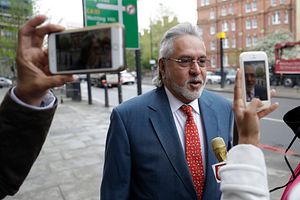Extraditing fugitives is hardly ever smooth and simple. Currently the government of India faces the uphill task of extraditing fugitive businessmen Vijay Mallya and Nirav Modi, who have been booked for numerous offenses including money laundering. While extradition proceedings have been formally initiated against Mallya in the United Kingdom, concrete proceedings are yet to be initiated against Modi due to uncertainty regarding his location. Reports have emerged, however, that Modi has plans to seek political asylum in the U.K. to avoid extradition to India. He may in the future urge the court in U.K. to protect him from extradition on the grounds of India’s poor human rights standards, the same claim put forth by Mallya.
India has not been very successful in extraditing fugitives from the United Kingdom. Despite an extradition treaty, which was signed in 1992, only one person has been extradited to India so far. There are numerous instances of failure to extradite fugitives. The most glaring one is the failed attempt to extradite British citizen Raymond Varley. In 2014, the High Court in the U.K. rejected India’s plea to extradite Varley, who has been charged by the Central Bureau of Investigation and other investigating authorities for sexually abusing numerous children in an orphanage in Goa between 1989-91. Varley had earlier faced prosecution in the U.K. for similar offenses. He was arrested by INTERPOL in Bangkok and deported to the U.K. When India sought his extradition, Varley pleaded that he was more than 60 years old and suffered from dementia and other mental illnesses, which would get aggravated if he was extradited to India. The Court accepted this plea and refused extradition. The Court also rejected India’s offer to have Varley medically examined in India and allow him to return to the U.K. if his dementia was confirmed.
In October 2017, a Westminster Magistrates’ Court refused to extradite Sanjeev Kumar Chawla, who is alleged to have been involved in fixing matches played between India and South Africa in 2000. While the Court was convinced that a prima facie case had been made, extradition was refused on the grounds that the conditions in Tihar Jail in Delhi were appalling and detention there would amount to a violation of human rights. An appeal is being heard against this order.
These incidents suggest that diplomacy and extradition treaties alone will not fetch the desired results for India. Extradition often involves conflicting sovereign interests. While the requesting state seeks to prosecute offenders pursuant to its sovereign power, the state where the fugitive is located has sovereign interests as well. These include treaty obligations, different laws, the prerogative to grant asylum, and higher standards of protection of human rights. The U.K. has obligations under the European Convention of Human Rights and it was pursuant to the same that the Court rejected India’s request to extradite Chawla.
It is a known fact that prison conditions in India are appalling. The National Crime Records Bureau’s data and a report prepared by an amicus curiae appointed by the Supreme Court reveal that Indian jails are terribly overcrowded (up to 150 percent of their capacity) and the Court has expressed concern about prisoners being treated as animals. Other issues include a high frequency of violence inside jails, poor hygiene, and the number of natural and unnatural deaths in jails. Prisons in Europe are definitely more humane than the prisons of India and the conditions of Indian prisons are bound to horrify the U.K. courts, making extradition difficult to achieve.
Meanwhile, Mallya has resisted extradiction by claiming persecution and Modi too is all set to assert the same. Mallya’s counsel contended that the Central Bureau of Investigation is not independent and is often influenced by the government and hence proceedings against him would be oppressive and unjust. Yet another defense taken is that there is an ongoing media trial against Mallya, which would hamper due process in India. It is pertinent to note that Article 9 of the Extradition Treaty between India and the U.K. recognizes unjust and oppressive proceedings as a ground to refuse extradition. The government has received a lot of flak from the opposition and citizens for having failed to prevent Mallya and Modi from fleeing and hence it is natural for Mallya and Modi to assert that the government is persecuting them for political gains by not treating their cases objectively. The U.K. has on earlier occasions refused extradition on the grounds of proceedings being unjust and not initiated in good faith; one such example is the refusal to extradite Nadeem Saifi, who was accused of killing Gulshan Kumar, a music baron in Mumbai.
Overcoming these barriers to the extradition and Modi and Mallya will require robust efforts from the legal team to convince the Court that these fugitives won’t face persecution and that adequate measures will be taken to protect their human rights in prison. It is, however, desirable that the prison conditions be improved to protect the human rights of all prisoners — and not just extradited fugitives’.
Rahul Machaiah is a law student from India.

































